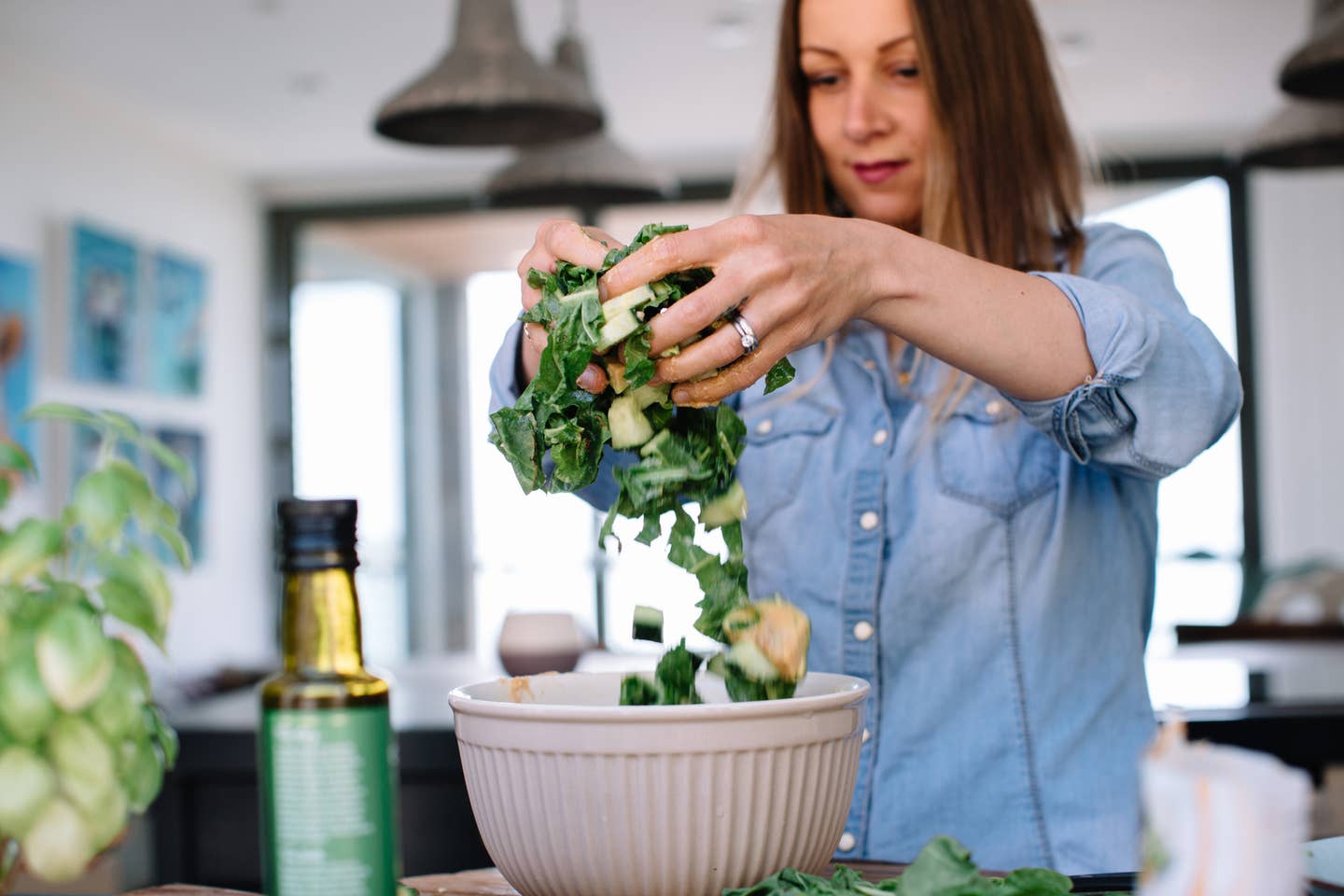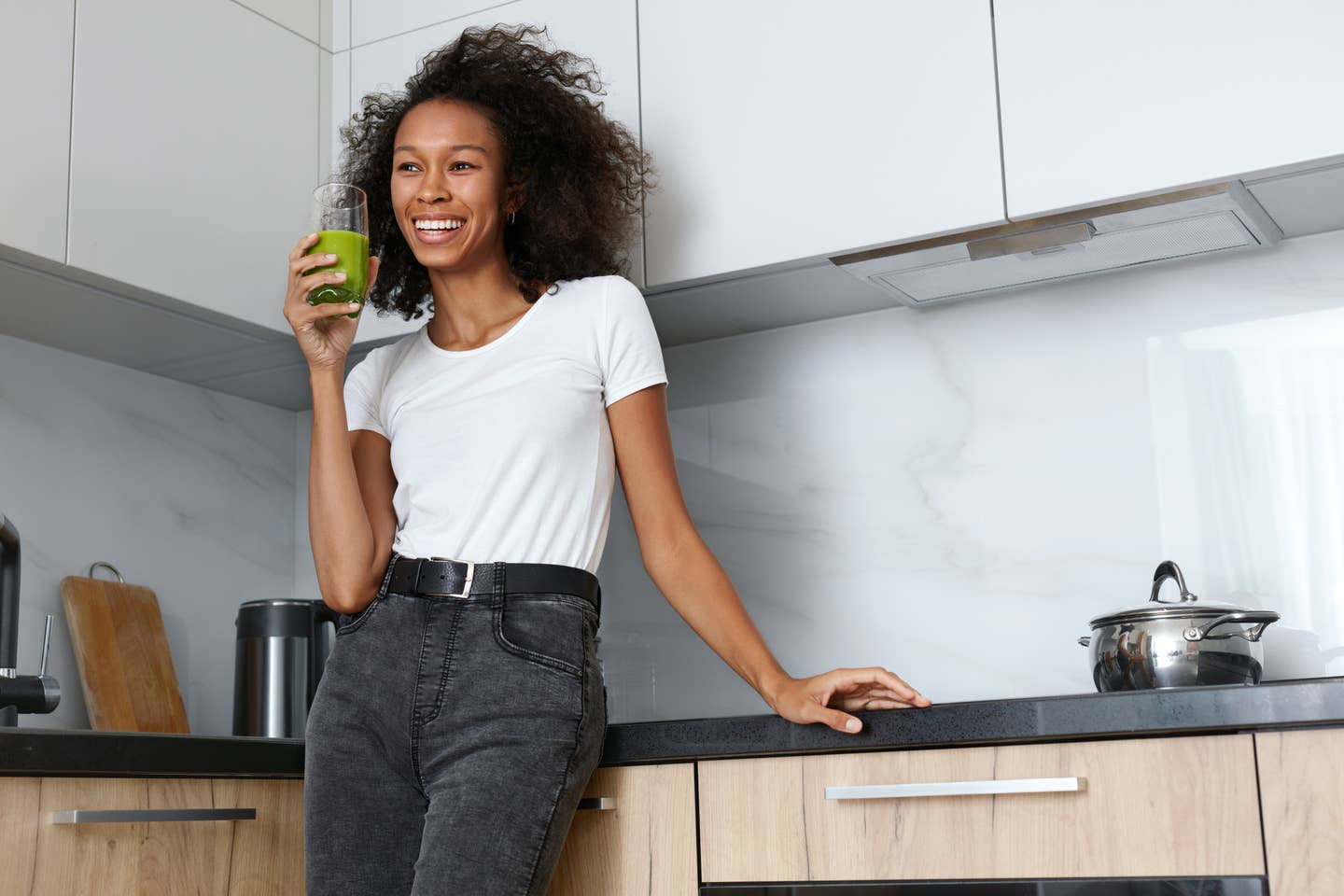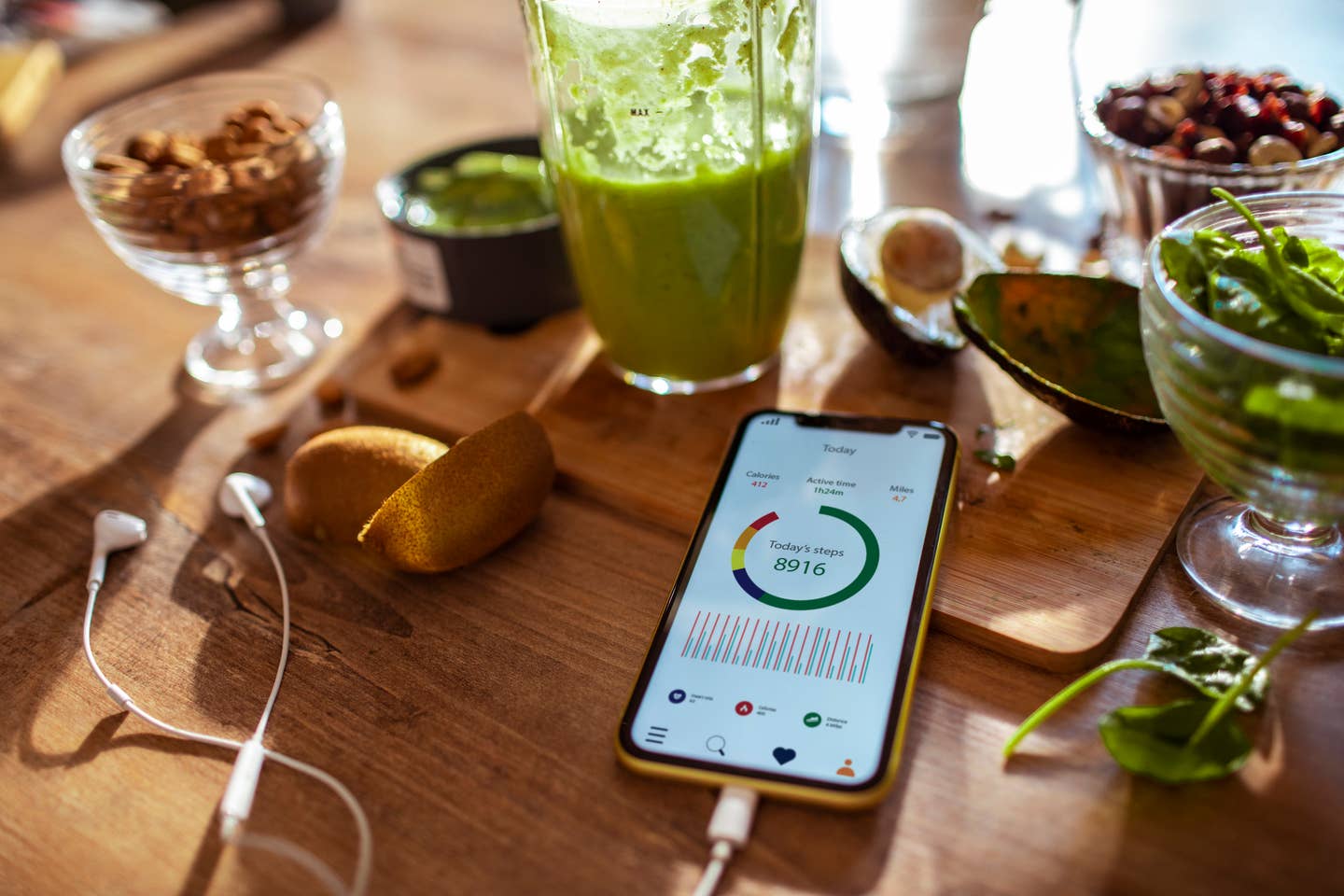
What’s the Best Way to Go Plant-Based? Ease Into It? Or All at Once?
Think of the last time you started a new healthy habit, or quit a bad one. What worked for you? Did you wake up one day and kick cigarettes to the curb? Or enlist the patch, nicotine gum, to help you quit the sticks gradually, day by day?
When you take on a new challenge or want to create a healthy habit, your personality may be more matched to leaning into change, rather than jumping in all at once. If that's the case, then think of the 21 Day Plant-Based Challenge as your on-ramp to going plant-based, and start by taking small steps to the goal of eating mostly plants. Some people cut out food groups, others practice being vegetables, fruits, nuts, seeds and grains before dinner. Here are some strategies that can work when you try to make the change to mostly plants.
All your positive steps add up. Eating a diet that's 75 percent plant-based is better than 50 percent. The closer you get to 95 percent the better for your health, according to studies. Considering most Americans don't get the recommended 5 servings of fruits and vegetables a day, if you start just by making sure you are hitting that bar, you're ahead of the game.
Studies show that a "mostly" plant-based diet is substantially healthier for you, lowering your risk of all forms of heart disease, such as heart attack and stroke, as well as diabetes. People who ate the most plant-based foods overall had a 32% lower risk of dying from cardiovascular disease and 25% lower risk of dying from any cause compared to those who ate the least amount of plant-based foods. Essentially, more plants food on your plate leads to better health. How you do it is up to you. We're here to help make it easier, more delicious and satisfying. Because once you start to feel the benefits, we suspect you'll want to keep going -- until you reach the plant-based summit.
Starting Small to Built Toward Success
When you contemplate: "How do you want to try to go plant-based?" know this: Everyone is different. I met a woman who explained that -- inspired by her sister who had done it suddenly and was feeling fantastic -- she herself started gradually. "The first week, I did Meatless Monday, and that went well. The second week I added Tuesday and then the third week, Wednesday, and so on, until by week seven, I was eating totally plant-based the entire seven days." I was impressed, since I had never heard of this approach before, yet it made sense. In just seven weeks she had transformed her way of eating to a healthy plant-based diet and didn't miss meat and dairy. And, she reported, she was also feeling fantastic!
The other way we know is to try to add in one new plant-based meal a day for the first week, add in a second meal every day the second week and by week three, all three meals are plant-based -- theoretically. So your first week is committed to plant-based breakfasts (oatmeal or avocado toast are the crowd-pleasers) and the second week you add in lunches (try wholesome filling salads and hearty soups, or bean chili and or a vegetable-based wrap). Then, by week three, you commit to plant-based dinners. This is how Forks Over Knives is guiding its users on their Fresh Start Program.
Gradual Changes Work for Deliberate Types
The third way to go, and perhaps the most popular onramp, is gradual. You start by giving up meat, then poultry, then fish, then dairy. Or, you just stick to vegetables and fish for a while, until you realize you don't need all that fish. It even may gross you out and you break the habit of fish and just seek out plant-based proteins.
Call it vegetarian-to-pescatarian-to-ovo-to vegan transformation. Without realizing it, this is what I did. I basically left off animal protein and became more plant-focused over the course of a few years. My tastebuds changed over time and before I knew it, I didn't want to eat meat or chicken, but still enjoyed the occasional cheese and eggs and fish. Then one day I decided to see if I could go fully plant-based, and enjoy it. I went cold-turkey, or should we call it cold-veggie. And it stuck.
What's Your Secret to Success?
For most people, success begets success. Tell yourself you are going to replace a few food groups at a time -- meat, poultry, and cow's milk would be my suggestions -- and once you have figured out that you can be very happy with the vegetables and grains, seeds, nuts, fruit, and meat substitutes, you can feel you have succeeded in going mostly plant-based. Then jettison the few last remaining animal products that you have been keeping (eggs or cheese) and see if you feel even better.
When I looked up The Power of Habit, by Charles Duhigg, a book that has been a bestseller and that my friends have used to break bad habits, I found a useful video on the way habits work. Watching it, Duhigg explains that all habits are triggered by a certain behavior or event, called a "cue" which in his case the act of eating a chocolate chip cookie everyday art 3:30 p.m. He realizes that his "routine" was to go to the cafeteria, buy the cookie and then his "reward" was the social interaction with his colleagues -- chatting and catching up while eating the cookie. He eventually was able to break the habit by substituting that reward with another one -- a chat without the cookie, or even a walk around the block.
Applying this thinking to how to break the habit of eating cheese, meat, or animal protein, The Beet is offering 35 recipes for substituting plant-based delicious meals: Breakfasts, Lunches, Snacks, Dinners and Desserts, that make it easy to break the habit of eating animal product and switch over to healthier plant-based foods. So if your habit is to eat delicious pasta or pizza, or any other favorite cheesy food, check out our recipes and the swaps that will satisfy your reward system. Then sign up to take the 21 Day Plant-Based Challenge, which is everything you need to change your approach to food, one day at a time -- or whichever way you choose.
Have a thought on how to best go Plant-Based? Share your opinions in the comments below or on The Beet's Facebook page, here.
More From The Beet






